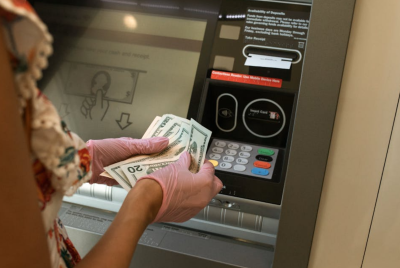£6.8 Billion Betrayal: TuSimple Slammed For Secret Tech Transfer To China
The company's pivot to AI gaming and animation in China, based on 'The Three-Body Problem' has further enraged shareholders

TuSimple, a once-promising US self-driving truck startup, is under fire after allegedly transferring sensitive technology to a Chinese firm, defying a US national security agreement.
The San Diego-based company, valued at £6.8 billion ($9.1 billion) at its 2021 IPO, promised to halt data sharing with Chinese partners but reportedly sent a trove of autonomous driving tech to Beijing, sparking outrage among regulators and investors.
Revealed on 27 May 2025, this breach has reignited debates over protecting US innovation. How did TuSimple's misstep happen, and what's next for the embattled firm?
Let's unpack the scandal shaking the tech world.
Safeguard Critical Tech from Foreign Hands
TuSimple's troubles stem from its 2022 pledge to the Committee on Foreign Investment in the United States (CFIUS), vowing to stop sharing proprietary tech with Chinese partners, per The Wall Street Journal.
Yet, posts on X from users like @Lingling_Wei report that just a week later, TuSimple transferred critical autonomous driving data to a Beijing-owned firm. This included algorithms and mapping tech developed in the US, where TuSimple logged over 10 million test miles on routes like Tucson to Phoenix.
A Yahoo Finance report notes CFIUS found no direct violation, but the breach eroded trust, with X user @cmroberson06 calling it a "betrayal of US interests".
The fallout has fueled calls for stricter oversight of tech firms with Chinese ties, especially as TuSimple's stock crashed from £50 ($67.39) to £0.15 ($0.20).
Restore Trust with Robust Oversight
The scandal has shredded investor confidence, with TuSimple delisting from Nasdaq in January 2024 and facing £360 million ($485 million) in frozen US assets due to shareholder lawsuits.
TechCrunch details a class action nearing a £151 million ($203 million) settlement, alleging fraud by co-founder Mo Chen. On X, sentiments like @CHItraders' posts slam TuSimple for prioritising Chinese operations, which cost £80 million ($107 million) annually, over US commitments.
The company's pivot to AI gaming and animation in China, based on "The Three-Body Problem," has further enraged shareholders, who see it as a misuse of funds. US regulators are now pushing for tighter export controls to prevent tech leaks, with a CFIUS review set to conclude by 15 July 2025.
Pivot Strategy to Protect US Innovation
TuSimple's actions highlight the risks of globalised tech development. The firm's partnerships with Chinese investors like Sina and its Beijing office raised red flags, per Reuters.
Its 2023 autonomous trials in Shanghai's Yangshan Port, handling £560 billion ($754 billion) in freight yearly, showcased its tech's value but also its vulnerability. X user @pstAsiatech notes Chinese firms lead in advanced driver-assistance systems, intensifying fears of US tech falling behind.
Proposed fixes include barring dual operations in rival nations and mandating transparency in data transfers.
TuSimple's planned exit from the US, announced in December 2023, aims to focus on China, but legal battles may block asset transfers, protecting US investors.
TuSimple's Fall: A Wake-Up Call for Tech Security
TuSimple's secret data transfer to China is a stark reminder of the stakes in safeguarding US innovation.
Its broken promises have cost investors trust and billions in value, exposing gaps in national security oversight. As regulators tighten the screws, the tech industry faces a reckoning, protect critical assets or risk losing global edge.
TuSimple's blunder is a costly lesson, America's tech future hangs in the balance.
© Copyright IBTimes 2025. All rights reserved.





















